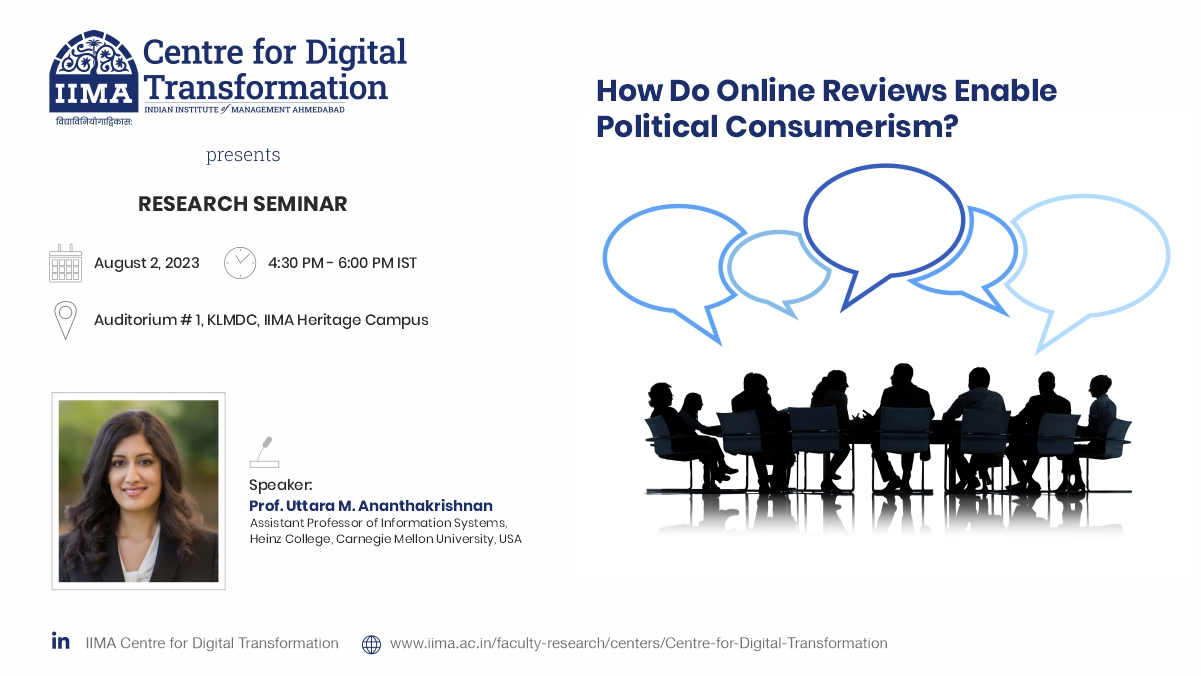
02/08/2023 - 02/08/2023

Abstract:
Consumers are increasingly supporting businesses and brands that align closely with their values in an act of political consumerism. Despite the increasing demand to support minority-owned businesses, discovering these businesses through traditional channels remains challenging. We examine whether and how online reviews enable the discovery of Black-owned businesses, particularly during increased demand to support these businesses. We leverage GPS-enabled foot traffic data, hand-collected data from a directory of Black-owned restaurants, business details from Yelp.com, and zip code-level social capital data to understand the potential mechanisms driving this change. Our results suggest that Black-owned restaurants that receive reviews indicating Black ownership experience a 10.8% increase in foot traffic compared to Black-owned restaurants that do not receive these reviews. Further, reviews that mention black ownership provide a 4.6% increase in foot traffic to these restaurants during times of increased interest in supporting Black causes. We find that restaurants located in White neighborhoods and neighborhoods with stronger ties across socioeconomic status drive these effects. Further, our results demonstrate that the increase in foot traffic to restaurants that mention Black ownership stems from areas with high White and affluent customers. Together, our results demonstrate the power of user-generated content in enabling political consumerism even without targeted interventions from digital platforms or voluntary disclosure of race by business owners.
About the Speaker:
Prof. Uttara M. Ananthakrishnan is an incoming Assistant Professor of Information Systems at Heinz College, Carnegie Mellon University. Prior to this, she has been an Assistant Professor at the Foster School of Business at the University of Washington. At a broad level, her research objective is to analyze consumer and firm behavior online and to understand how these interactions influence the design and operation of online marketplaces. Her research sits at the intersection of Technology, Economics, and Policy. In her research, she uses techniques from social science to understand the drivers of online market behavior and to develop managerially relevant responses for firms and market designers. Before joining the Ph.D. program, she worked at Google for three years. During this period, she was a part of the Google+ team, where she analyzed the sharing patterns of users and developed signals to automate spam and abuse detection on social products of Google. During her time at Google, she worked with engineering, policy, and legal teams to design policies that aimed to identify, report and mitigate abuse on social media, including harassment of minors.
